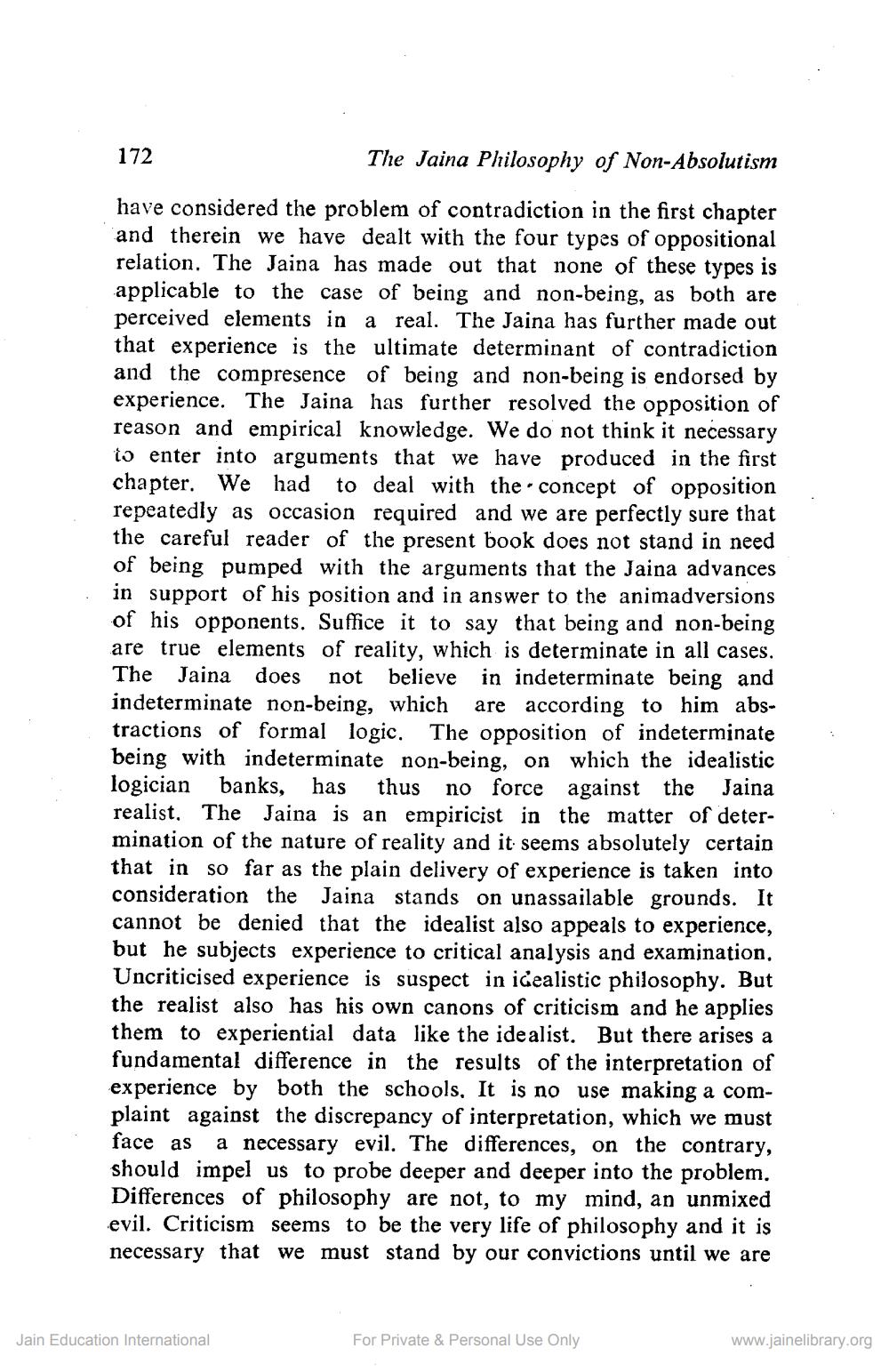________________
172
The Jaina Philosophy of Non-Absolutism
have considered the problem of contradiction in the first chapter and therein we have dealt with the four types of oppositional relation. The Jaina has made out that none of these types is applicable to the case of being and non-being, as both are perceived elements in a real. The Jaina has further made out that experience is the ultimate determinant of contradiction and the compresence of being and non-being is endorsed by experience. The Jaina has further resolved the opposition of reason and empirical knowledge. We do not think it necessary to enter into arguments that we have produced in the first chapter. We had to deal with the concept of opposition repeatedly as occasion required and we are perfectly sure that the careful reader of the present book does not stand in need of being pumped with the arguments that the Jaina advances in support of his position and in answer to the animadversions of his opponents. Suffice it to say that being and non-being are true elements of reality, which is determinate in all cases. The Jaina does not believe in indeterminate being and indeterminate non-being, which are according to him abstractions of formal logic. The opposition of indeterminate being with indeterminate non-being, on which the idealistic logician banks, has thus no force against the Jaina realist. The Jaina is an empiricist in the matter of determination of the nature of reality and it seems absolutely certain that in so far as the plain delivery of experience is taken into consideration the Jaina stands on unassailable grounds. It cannot be denied that the idealist also appeals to experience, but he subjects experience to critical analysis and examination, Uncriticised experience is suspect in idealistic philosophy. But the realist also has his own canons of criticism and he applies them to experiential data like the idealist. But there arises a fundamental difference in the results of the interpretation of experience by both the schools. It is no use making a complaint against the discrepancy of interpretation, which we must face as a necessary evil. The differences, on the contrary, should impel us to probe deeper and deeper into the problem. Differences of philosophy are not, to my mind, an unmixed evil. Criticism seems to be the very life of philosophy and it is necessary that we must stand by our convictions until we are
Jain Education International
For Private & Personal Use Only
www.jainelibrary.org




